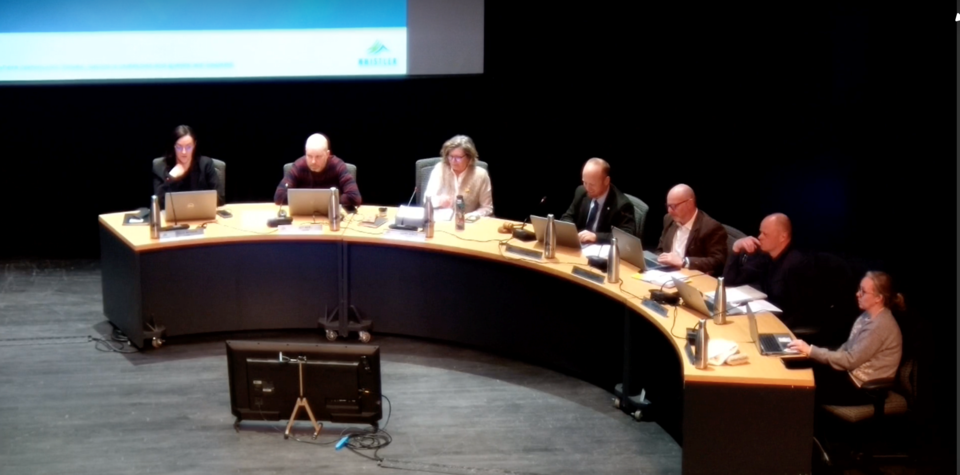The Resort Municipality of Whistler (RMOW) is still grappling with the finer points of new provincial housing legislation.
At its Feb. 25 meeting, Whistler council gave first three readings to bylaw amendments related to the provincial Small Scale Multi-Unit Housing (SSMUH) initiative.
The amendments are intended to “provide clarification and address items not fully considered,” according to a staff report.
In case you missed it, SSMUH is being enacted across the province in response to Bill 44, which requires municipalities to update their zoning bylaws. The intent is to create additional housing opportunities in existing single-family neighbourhoods by allowing a wider range of housing types. The new zoning rules apply extensively across Whistler's traditional single-family neighbourhoods to 3,470 properties.
The first bylaw amendment includes adding a minimum size for a dwelling unit (32.5 square metres), increasing floor area exclusions for parking spots, requiring building permit applications designate which units are residential rental tenure, and allowing RI1 zoned property owners to develop under the same SSMUH regulations as RS1 zoned properties, or use existing RI1 zoning regulations.
The second amendment includes harmonizing references to employee housing covenants, duplexes in the RM70 zone are permitted an auxiliary residential dwelling unit (ARDU) in each half of a duplex, and the amendment adds an enforcement clause.
Bylaw testing that was requested by council May 14, 2024 is also underway for SSMUH and should be presented to council by the second quarter of 2025.
Mike Kirkegaard, technical director of planning, presented the amendments.
“The proposed changes at this stage are essentially what could be called bug fixes and system upgrades or updates,” Kirkegaard said, noting the tight six-month timeline given by the province to adopt the legislation meant not all pieces of the puzzle were considered when developing the SSMUH bylaw.
The specific changes came from consultation with developers, applicants and from applying the new regulations to active permit applications.
Despite these “bug fixes,” councillors still had concerns related to the top-down legislation and the impacts removing a bed cap will have on Whistler.
Features or bugs?
Councillor Arthur De Jong brought forward concerns over densifying in areas that are already at risk for wildfires and floods and whether Bill 44 has opt-out opportunity in these instances.
While he could only speak in general terms, Kirkegaard said communities could identify potential hazards, but that Whistler did not have any submitted.
De Jong also pointed to difficulties in adhering to the legislation while lacking capacity to provide services for increasing population.
Kirkegaard stressed the municipality's legal requirement to adhere to Bill 44, and staff said there is potential for the province to provide more funding in extreme circumstances, but it would require establishing the financial model included in the legislation wouldn’t effectively fund growth-related costs.
“Everyone thought that there was a bed cap, and what has happened is that the province has removed that bed cap,” said Coun. Cathy Jewett. “So now we've got to put some rules in place. And I have to say that our staff has done a very creative job of creating this residential rental tenancy. But it's very expensive to redevelop a single-family home in Whistler, so it's going to take time before I think we really see the numbers.”
De Jong was less reserved in his criticism, saying he has stood by the bed cap and the Official Community Plan (OCP) for the last two elections. He noted they are important for the community to ensure growth doesn’t exceed the village's carrying capacity.
“I feel like Bill 44 is throwing our OCP, which is a very good one, into the trash can, and I really feel it should be the other way around," he said.
The OCP must adhere to Bill 44.
Coun. Jeff Murl argued the impact will be best understood through bylaw testing.
Mayor Jack Crompton was focused on the potential benefits of ensuring neighbourhoods house residents and not only empty houses, whereas Coun. Jen Ford stressed the legislation will benefit communities outside of Whistler, citing Squamish and North Vancouver.
“I find it troubling when we talk about these things as though it's happening to us," she said. "This is not happening to us. This is recognition that there is a short supply of housing for people that need to be treated with dignity in our community and every other community in British Columbia."
All council members except for De Jong voted to pass the recommendations.





